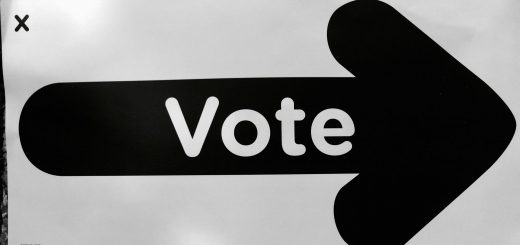Don’t Wake the Sleeping Leviathan: Senate Reform, the Constitution, and the Supreme Court of Canada
The Fall sitting of Parliament began last week and, if you’re like most Canadians, this is probably news to you. Indeed, the spectacle usually appeals only to serious politicos and the Parliamentary Press Gallery, who are gleefully privy to a renewed arsenal of talking points. This time around, however, things weren’t all smoke and mirrors—the legal community learned of Prime Minister Harper’s intention to ask the Supreme Court of Canada to weigh in on the constitutionality of the government’s proposed Senate reform legislation. While the parameters of the putative reference case are, at this time, unclear, one can comfortably assume that it will centre on the contents of Bill C-7, the Senate Reform Act.
This post, intended to be an introduction to some of the constitutional roadblocks to Senate reform, previews the coming reference case, canvasses its principal issues, and evaluates its most likely outcomes.
The Legislation: Bill C-7
Bill C-7, or the Senate Reform Act, has endured an underwhelming legislative history to date. Introduced in June 2011, the Bill has been stuck at second reading for nearly a year with very little progress. The Bill itself is composed of two parts—Part I, which establishes a framework by which nominees for Senate appointments are to be elected; and Part II, which sets a term limit of nine years on appointees selected after 2008.
Given that the term limit portion of the Bill is structured as an express constitutional amendment, and that there is a strong case to be made that this amendment falls within the Parliament’s exclusive power to amend the constitution in relation to the Senate (Constitution Act, 1982, s. 44), only the provisions relating to Senatorial selection will be treated here.
With respect to the proposed selection process, the Schedule to the Bill establishes an electoral procedure by which a list of nominees for Senate vacancies will be produced by each Province and Territory. It is neither necessary nor prudent to delve into the specifics of the Bill’s electoral procedure, mainly because those rules are uncontroversial and add little, if anything, to the constitutional question.
What is important is the following principle, contained in section 3 of the Bill: “the Prime Minister, in recommending Senate nominees to the Governor General, must consider names from the most current list of Senate nominees selected for that province or territory” (emphasis added). The principle is again rephrased in section 1 of the Schedule, which states “Senators… should be chosen from a list of Senate nominees submitted by the government of the province or territory.”
In my view, Bill C-7 gives rise to at least two separate but interrelated constitutional questions. First, can Parliament validly enact Bill C-7 unilaterally?; and second, would the Senatorial selection scheme be legally binding on future Prime Ministers?
Can Parliament Enact Bill C-7 Unilaterally?
The first issue—whether Parliament can unilaterally pass a bill creating an electoral regime for Senatorial nominees—plainly showcases the tension between Parliament’s ability to enact statutes relating to matters within its jurisdiction and a provision of our constitutional amending formula.
Section 42 of the Constitution Act, 1982 states:
“(1) An amendment to the Constitution of Canada in relation to the following matters may be made only in accordance with subsection 38(1) [the general procedure, which requires resolutions of Parliament and at least seven Provinces making up at least 50% of the population]:
[…](b) the powers of the Senate and the method of selecting senators (emphasis added.)”
The conflict here is clear, but the resolution is not: is a law compelling a Prime Minister to “consider” a list of elected nominees for any Senate appointment a change to the method of selecting Senators, or simply an advisory gloss?
On the one hand, some would contest that Bill C-7 is simply an ordinary statute of an advisory nature. The “method” of selecting Senators remains unaltered as the Governor General, on the advice of the Prime Minister, still “summon[s] qualified Persons to the Senate” (Constitution Act, 1867, s 24). All that Bill C-7 changes, the argument goes, is that the Prime Minister must give consideration to nominees who have been elected according to the Bill’s process.
Conversely, others may argue that Bill C-7 is a colourable, backdoor attempt at amending the constitution in a way that ignores the amending formula and the requirement for Provincial approval. The plan is properly a change to the way Senators are appointed, and ought to be presented to the Provinces and tabled as a formal constitutional amendment. It is presumably on this basis that at least one Province has indicated its intention to challenge the constitutionality of Bill C-7, should it, of course, receive royal assent.
While Alberta has enacted a similar statute, the Senatorial Selection Act, the constitutionality of these types of legislative attempts to reform the Senate have not been litigated. The Supreme Court of Canada will find itself, as it usually does, with strong competing arguments on either side of a novel question of constitutional law.
Would Bill C-7 Bind Future Prime Ministers?
As it currently stands, so long as the nominee meets a set of basic (and largely outdated) constitutional qualifications, the Prime Minister can recommend whomever he or she wishes to the Governor General to be appointed to the Senate. The second problem, which in many ways flows from the first, is to what extent, if any, Bill C-7 will constrain the Prime Minister’s wide discretionary powers in this regard.
From a constitutional standpoint, if Bill C-7 is found to be a validly enacted ordinary statute, then it cannot also be found to require Prime Ministers to only recommend elected nominees. Such a scheme would, without doubt, be tantamount to changing the “method of selecting Senators” and require a constitutional amendment. This is in line with a literal reading of the statute, which requires only that Prime Ministers “consider” names from the list of elected nominees. The level of consideration required is not defined and, presumably, can be all but ignored by a Prime Minister if they so wish.
It also helps that, on this point, we do have case law to turn to. In Samson v Canada (Attorney General) 1998 CanLII 8543, the applicant sought an interlocutory injunction restraining the Governor General from appointing individuals to the Senate from Alberta, unless the appointee has been elected pursuant to the Senatorial Selection Act. In dismissing the application, the Federal Court described the power of appointment as “purely discretionary,” which can only be limited by “constitutional amendments… effected in accordance with the procedure prescribed in… the Constitution Act, 1982” (at para 5).
Conclusion: All may not be lost
At this point, you may be thinking that the Bill C-7 saga is much ado about nothing. Why all the fuss, critics charge, about what is likely an ordinary statute that will likely sit on the books and have no legal effect unless the sitting Prime Minister voluntarily opts to recommend an elected nominee for appointment? While there is certainly some basis in this criticism, it overlooks the cleverness of the Bill’s drafters.
Prime Minister Stephen Harper and the Conservative Party of Canada have long been proponents of Senate reform. However, since taking office, the Harper government has also staunchly opposed re-opening the constitutional debate—the ‘sleeping Leviathan,’ as it has been called. Despite its legal shortcomings, Bill C-7’s terms may carry political sway. It is hardly difficult to conceive of a political landscape, decades from now, in which the Senate Reform Act has become a well-respected statute by convention. If a situation developed whereby future Prime Ministers dare not recommend an unelected nominee for fear of political reprise, then Bill C-7’s drafters will have realized their ultimate goal: Senate reform without having to wake the sleeping Leviathan.
In any event, Bill C-7 gives rise to a number of perplexing legal questions that are sure to grip lawyers, academics, and politicians alike.







Join the conversation